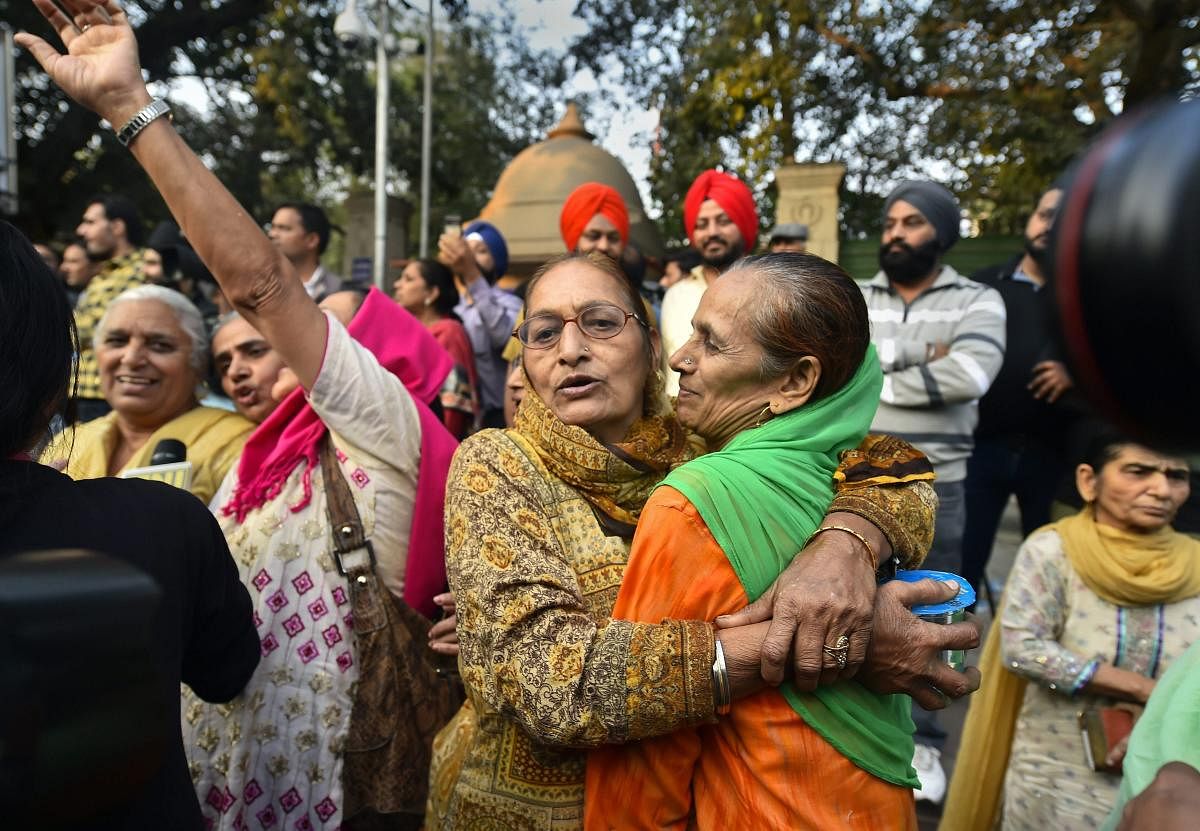
The Delhi High Court has upheld the conviction and sentences of five years' imprisonment awarded to 70 people for the 1984 anti-Sikh riots, calling it “indeed a dark chapter in the history of independent India”.
Justice R K Gauba decided a batch of 23 criminal appeals filed by 89 convicts, against a trial court judgement of August 27, 1996 holding them guilty of the riots that followed the assassination of then Prime Minister Indira Gandhi on October 31, 1984. Sixteen convicts had died and three absconded during the pendency of appeals.
The high court lamented that 34 long years have passed after the crimes were committed and the victims still await justice and closure.
“The manner of prosecution of the case at hand would undoubtedly go down in judicial history of this country as an example of criminal law process that must never be emulated,” the court said.
“Is this what we call a potent and effective criminal justice system? Is our judicial apparatus at all equipped to deal with the crimes of such magnitude? Do we have lessons to be learnt from this sordid experiment in the name of criminal law process? It is, indeed, a matter of lament that there has been no meaningful thought spared till date to usher in reforms in the judicial process to effectively deal with the cases of communal riots which are engineered, more often than not, by those who have clout or influence...,” the single judge bench wrote in its 79-page judgement.
The high court also wondered why no murder charge was framed against the accused persons though more than 100 people had died according to the FIRs concerned.
In a strong indictment of law enforcement machinery, the court said, “The police officials entrusted with the responsibility of taking note of the crimes or follow-up action under the criminal law, instead of discharging their obligations, turned their gaze the other way or made endeavour to ensure that those guilty could either escape or even if brought to trial, could avoid their guilt being proved.”
Using press reports
The HC suggested amendment to the Commissions of Inquiry Act, 1952 and the Protection of Human Rights Act, 1993 to entrust the responsibility of taking note of cognizable offences committed in communal riots. It also said there is a strong case for utilising as evidence the press reports, supported by photographic material or video footages put in public domain in trials of criminal cases arising out of communal riots.
The court said the theories of politico-criminal nexus, aided and assisted by police or civil service
officials loyal to the cause, being behind the mayhem wreaked with virtual impunity or immunity, continue to abound and haunt.
“There is also a contrarian view that such dark chapters in the history of the land must never get effaced from memory since they confront us, the civil society at large, by showing a mirror to the rot that lies within,” it added.